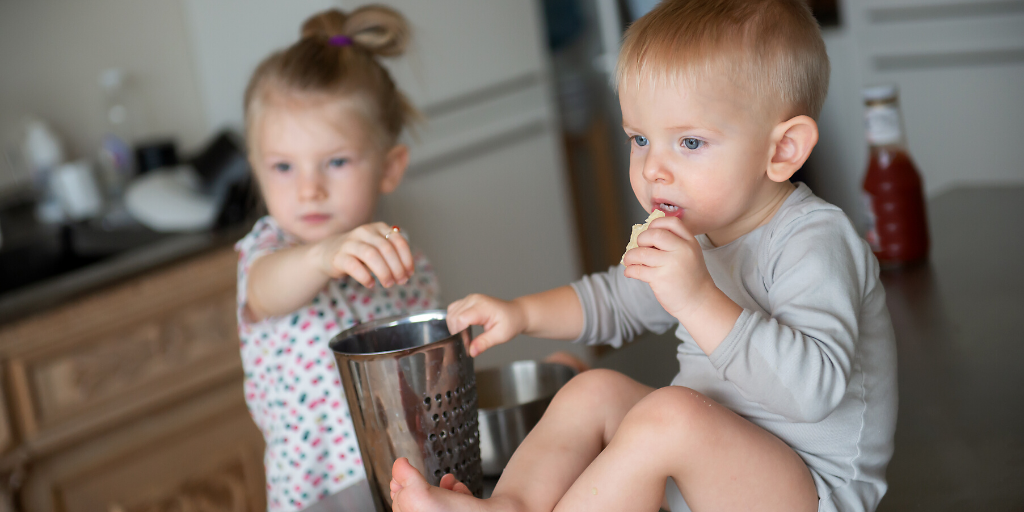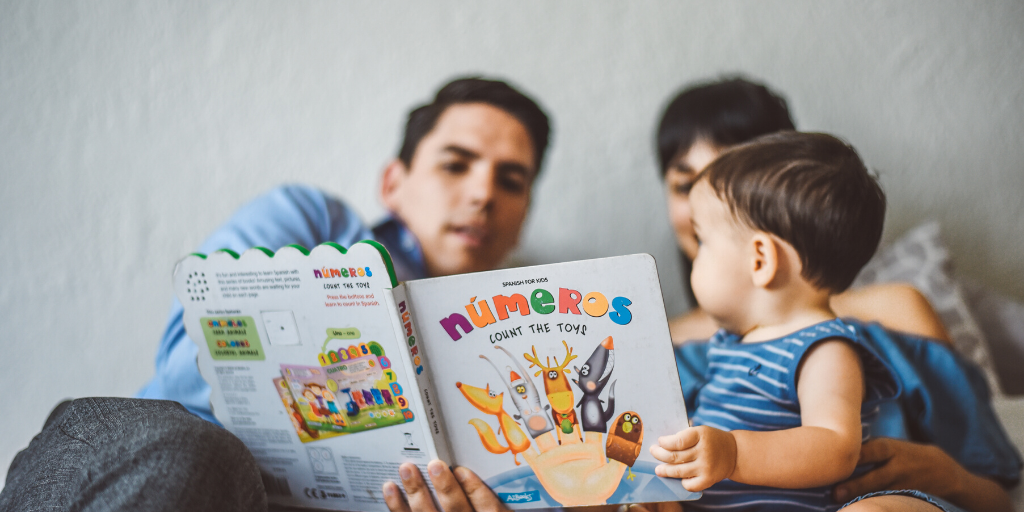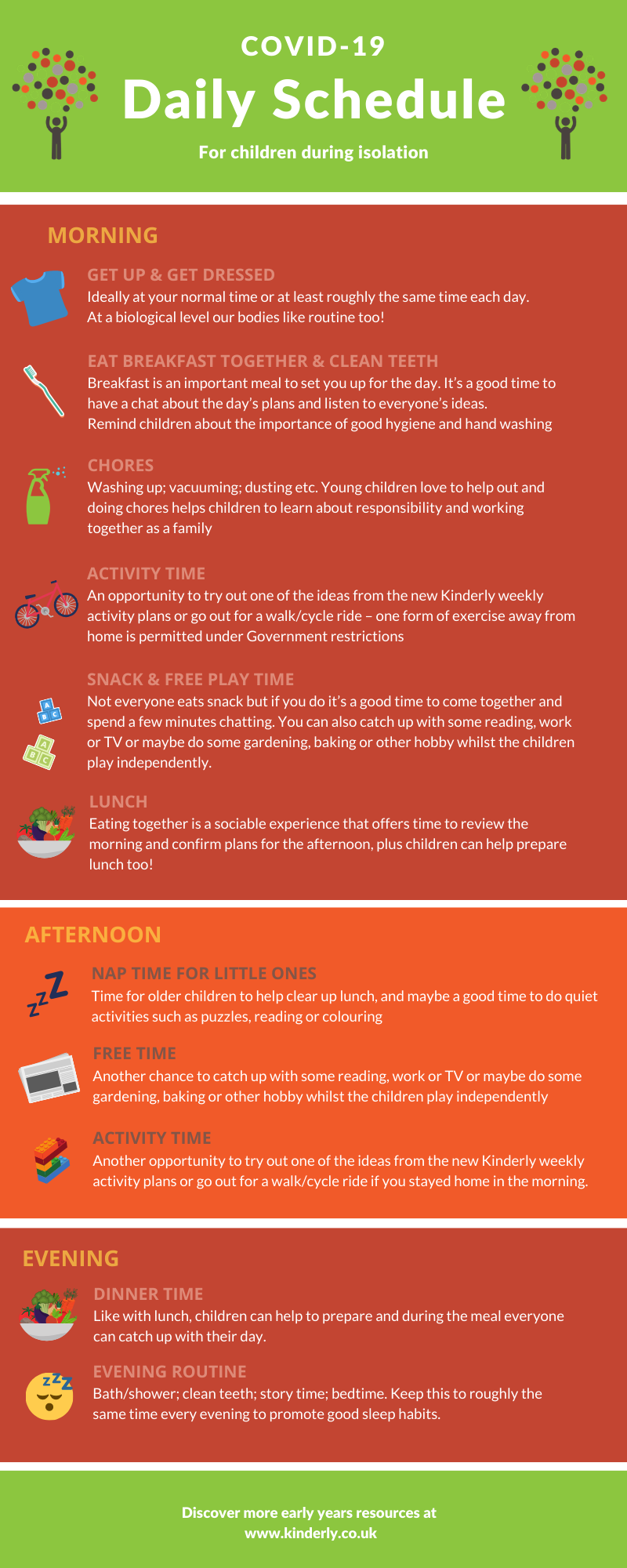During isolation, we’re all having to readjust to daily life and learn ways in which new routines can work for both adults and children. As you’ve probably experienced, this can be er… quite a challenge! So, we’ve asked our early years expert and childminder Rebecca Martland for some tips on how we can all navigate routine a bit better, including an example schedule. Let’s have a look…
Having a routine is a tricky business right now. Although initially, it may seem like a great opportunity to relax, turn off the alarm and have pyjama days, in the long run, this is not good for anyone, especially children. As adults, we need to feel motivated and purposeful. Children need to feel safe and secure and having predictable routines help with this.

Children rely on knowing what to expect; to predict what will happen next and be able to rely on the adults around them to provide this stability. Knowing that when they wake up or have lunch enables children to feel secure and confident in their expectations. Children who do not feel safe will show this in their behaviour: they may become more easily upset or angry as they respond to the fear that uncertainty can bring.
Children need to learn to deal with uncertainty and unpredictability however, in order to develop resilience and practice their problem-solving skills. As parents, you guide and support children, co-regulating their emotions as they experience change, disappointments and challenges in their daily life and learn the self-regulation skills they need to cope with these.

I am not suggesting that every moment of a child’s waking day should be planned and charted out. That would be counter-productive and benefit no-one. Children do need downtime, to relax and play freely, to use their imaginations and follow their curiosity. Having unstructured, free play is essential to children’s development.
Think of your daily routines in the form of a structure or framework that the rest of the day is built around – like a skeleton, but with wriggle room for flexibility as needed. Here’s an example we’ve put together:

This is just a suggested plan, you will have your own daily patterns and routines so feel free to adapt it to suit you : )
Although the current situation is a challenging and difficult one, it is also an opportunity. We have been given the chance to spend an unusually prolonged amount of time with our families. Let us use it well – to develop strong bonds and positive relationships – to enjoy being together.
Want more helpful resources? Try award-winning nursery management software Kinderly Together for 30-days for free and see what we can support early years practitioners to be outstanding.
About Rebecca

Rebecca Martland has over 18 years’ experience in the early years sector, as a registered childminder; early years trainer, consultant and author. She is a qualified teacher and Early Years Professional and is Kinderly’s resident expert on the Kinderly Learn platform.
Rebecca is a staunch advocate of play-based, child-centred education and childcare. This philosophy is at the centre of her training and a message she shares widely as an active member of the early years community. Find out more at: www.childrenatheart.net